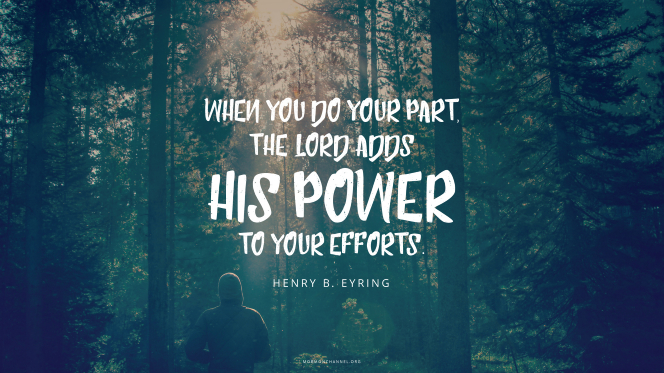Post # 10 – So Many Questions
Dear Family & Friends,
I have been
thinking a lot about when a person gets a diagnosis of one type of cancer or
another and they usually have so many questions. It can be very overwhelming, confusing, and
simply put – your mind can be a jumbled mess. First of all you want to know where to find good , trustworthy information. A good place in the American Cancer Society.
It’s good to make a list of
questions to ask your doctors to make sure that you are understanding your
diagnosis as well as the treatment plan that the doctors have come up with to
either shrink the mass, or kill the cancerous cells, or prevent the growth of
those cancerous cells.


I thought it might be good to review some of the basics
about cancer with you for those of you who are not as familiar with it as some
of us are. The following information comes from the American Cancer Society
website:
What is cancer?
-- Cancer can start any place in the body.
It starts when cells grow out of control and crowd out normal cells. This makes
it hard for the body to work the way it should.
Cancer can
spread from where it started to other parts of the body. Cancer cells in the
lung can sometimes travel to the brain and grow there. When cancer cells do
this, it’s called metastasis (meh-TAS-tuh-sis). To doctors, the cancer cells in
the brain look just like the ones from the lung.
Cancer is
always named for the place where it starts. So when lung cancer spreads to the
brain (or any other place), it’s still called lung cancer. It’s not called
brain cancer unless it starts from cells in the brain.
Are there different kinds of cancer? -- There are many types of cancer. Cancer can start in any part of
the body. It can start in the lungs, the breast, the colon, or even in the
blood.
Your doctor
can tell you more about the type you have.


Questions to ask the doctor
v What
tests will I need to have?
Ø Who
will do these tests?
Ø When
will they be done?
v Who
can explain them to me?
Ø How
and when will I get the results?
v Who
will explain the results to me?
Ø What
do I need to do next?
v Do
you know the stage of the cancer?
If you have cancer, the doctor will want
to find out how far it has spread. This is called staging.
Your doctor will want to find out the stage of your cancer to help decide what
type of treatment is best for you.
The stage
describes how much the cancer has grown in the area where it started. It also
tells if the cancer has spread to other parts of your body.
Your cancer may be stage 0, 1, 2, 3, or
4. The lower the number, the less the cancer has spread. A higher
number, like stage 4, means a more serious cancer that has spread from where it
first started.
v If
not, how and when will you find out the stage of the cancer?
v Would
you explain to me what the stage means in my case?
v Based
on the stage of the cancer, how long do you think I’ll live?
v What
will happen next?
v Am
I going to die?
It’s normal to think about dying if
you’ve just been told you have cancer. You may feel better knowing that the outlook for many people diagnosed with
cancer is very good. Many people still believe that “cancer = death.” But the fact is that most cancers can be
treated. There are millions of people living in the United States today who
have or had cancer.


The survival rate among different cancers
varies greatly, so you’ll want to look at how well treatment works for your
type of cancer. Numbers can give you an overall picture, but keep in mind that
every person is unique. Statistics can’t
predict exactly what will happen to you. Talk with your cancer care team if
you have questions about your own chances of a cure, or how long you might
survive your cancer. They know your situation best.
v What
type of treatment will I need?
v What
are the side effects of the drugs you will be using?
- Surgery (SUR-jur-ee) -- Surgery is often used
to take out the tumor and a margin or edge of the healthy tissue around
it. The type of surgery done depends on where the tumor is. Ask your
doctor if you will need surgery, what kind of surgery you will have, and
what to expect.
Side effects of surgery
-- Any type of surgery can have risks and side effects. Ask the doctor what you
can expect. If you have problems, let your doctors know. Doctors who treat
cancer should be able to help you with any problems that come up.


- Radiation (RAY-dee-A-shun)
treatments -- Radiation uses high-energy rays (like x-rays) to kill cancer
cells. It may be used along with other treatments like surgery or chemo to
treat some cancers. Sometimes radiation alone can kill the cancer cells.
Radiation can also be used to help treat symptoms like pain and swelling
if the cancer has spread.
Radiation can be aimed at the tumor from
a machine outside the body. This is called external beam radiation. This is the type of radiation that
I received, but we’ll visit more about this in a later post😊
Radiation can also be given by putting a
small source of radiation in or near the tumor. This is called brachytherapy
(BRAKE-ee-THAIR-uh-pee).
Sometimes, both types of radiation are
used.
Side effects of radiation treatments
-- If your doctor suggests radiation treatment, talk about what side effects
might happen. Side effects depend on the type of radiation that’s used and the
area being treated. Common side effects of radiation are: ** Skin changes where
the radiation is given * *Feeling very tired
Most side effects get better after
treatment ends. Some might last longer. Talk to your
cancer care team about what you can expect during and after treatment.
- Chemotherapy (KEY-mo-THAIR-uh-pee) -- Chemo
(KEY-mo) is the short word for chemotherapy, the use of drugs to fight
cancer. The drugs are often given through a needle into a vein. They can
also be given as shots or pills. These drugs go into the blood and spread
through the body.
Chemo is often given in cycles or rounds.
Each round of treatment is followed by a break. Most of the time, 2 or more
chemo drugs are given.
Side effects of chemo
-- Chemo can make you feel very tired, sick to your stomach, and cause your
hair to fall out. Some chemo drugs can have other side effects. But these
problems go away after treatment ends. There are ways to treat most chemo
side effects. If you have side effects, talk to your cancer care team so
they can help.


I do not
have experience with the following, but I thought I would include the
information. Just in case someone out there needs it.
- Targeted drugs
Targeted drugs are made to work mostly on
the changes in cells that make them cancer. These drugs affect mainly cancer
cells and not normal cells in the body. They may work even if other treatment
doesn’t. They may be given alone or along with chemo.
Side effects of targeted drugs
-- Side effects depend on which drug is used. These drugs often make you feel
sick to your stomach and might cause chills, fever, rashes, and headaches. Some
cause low blood counts and heart and liver problems. Side effects often go away
after treatment ends.
There are ways to treat most of the side
effects caused by targeted drugs. If you have side effects, talk to your cancer
care team so they can help.
- Immunotherapy (IM-yuh-no-THAIR-uh-pee)
drugs
These
treatments help the body’s own immune system fight the cancer. Immune
treatments can be very helpful in treating some types of cancer. These
treatments are most often given through a needle into a vein.
Side effects of immune therapy drugs
-- Side effects depend on which drug is used. Some might cause a fever or make
you feel sick. Rarely, these drugs can cause more serious side effects. If you
have side effects, talk to your cancer care team so they can help.
Often more than one kind of treatment is
used. The treatment plan that’s best for you will depend on:
- The exact type of cancer ** The stage and
grade of the cancer ** Where the cancer is
- The chance that a type of treatment will cure
the cancer or help in some way
- Your age and overall health
- Your feelings about the treatment and the side effects that come with it
Clinical
trials -- Clinical trials are research studies that
test new drugs or other treatments in people. They compare standard treatments
with others that may be better.
If you would like to be in a clinical
trial, start by asking your doctor if your clinic or hospital takes part in
clinical trials.
Clinical trials are one way to get the
newest cancer treatment. They are the best way for doctors to find better ways
to treat cancer. If your doctor can find one that’s studying the kind of cancer
you have, it’s up to you whether to take part. And if you do sign up for a
clinical trial, you can always stop at any time.
 Questions to ask the doctor
Questions to ask the doctor
- Will I need to see other doctors?
- What treatment do you think is best for me?
- What's the goal of this treatment? Do you
think it could cure the cancer?
- Will treatment include surgery? If so, who
will do the surgery?
- What will the surgery be like?
- How will my body look and work after surgery?
- Will I need other types of treatment, too?
- What will these treatments be like?
- What's the goal of these treatments?
- What side effects could I have from these
treatments?
- What can I do about side effects that I might
have?
- Will I be able to exercise during treatment?
- Will I be able to work during treatment?
- Will I be able to have children after
treatment?
- Is there a clinical trial that might be right
for me?
- What about vitamins or diets that friends tell
me about? How will I know if they are safe?
- How soon do I need to start treatment?
- What should I do to be ready for treatment?
- Is there anything I can do to help the
treatment work better?
- What's the next step?

What will happen after treatment? -- You’ll be glad when treatment is
over. But it’s hard not to worry about cancer coming back. Even when cancer never comes
back, people still worry about it. For years after treatment ends, you will see
your cancer doctor. At first, your visits may be every few months. Then, the
longer you’re cancer-free, the less often the visits are needed.
Be sure to go
to all of these follow-up visits. Your doctors will ask about symptoms, do
physical exams, and may do tests to see if the cancer has come back. Make sure
that you tell your doctor about your symptoms, no matter how small or
insignificant they may seem – it could be very important!! And it’s better to
be on the safe side.
Having cancer
and dealing with treatment can be hard, but it can also be a time to look at
your life in new ways. You might be thinking about how to improve your health.
Call us at 1-800-227-2345 or talk to your doctor to find out what you can do to
feel better.
You can’t
change the fact that you have cancer. What you can change is how you live the
rest of your life – making healthy choices and feeling as good as you can.

You can also make sure that you have a positive attitude and rely fully on your Heavenly Father to help you through this journey that you must go through either yourself or with someone you love. You will also need to have a positive outlook and rely fully upon your Heavenly Father if you are a part of a support team for someone who is going through a cancer journey.

You can also make sure that you have a positive attitude and rely fully on your Heavenly Father to help you through this journey that you must go through either yourself or with someone you love. You will also need to have a positive outlook and rely fully upon your Heavenly Father if you are a part of a support team for someone who is going through a cancer journey.
So, until my next Post, keep your faith, stay
positive, and remember you can do all things through the Lord which strengthens
you.
Phillipians 4:13 I can do all things through Christ which strengtheneth me.
Just keep putting your trust in the Lord. Let Him
be your strength!!!

No comments:
Post a Comment